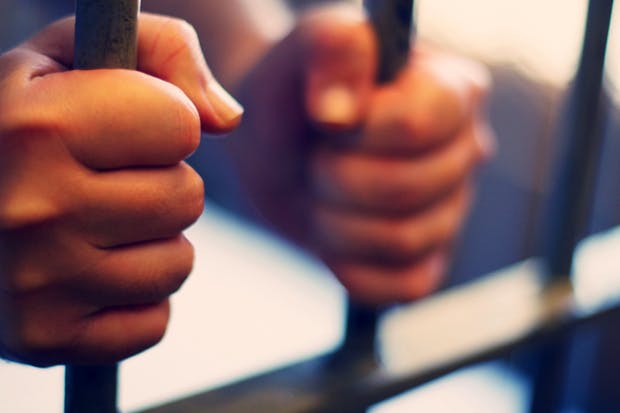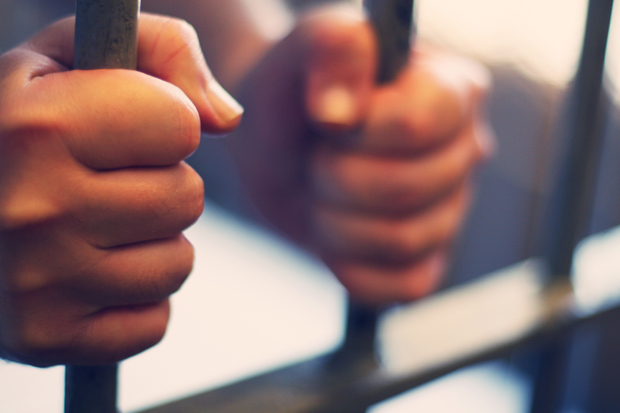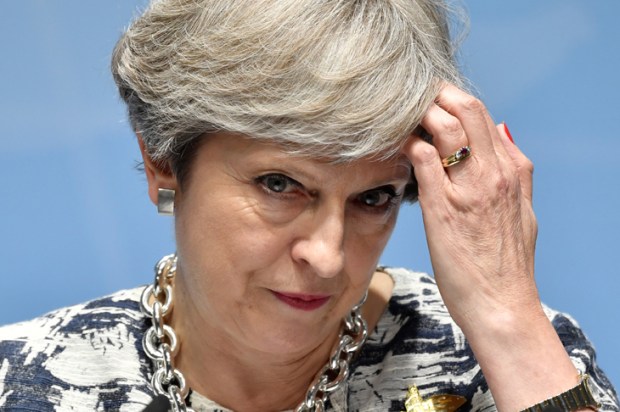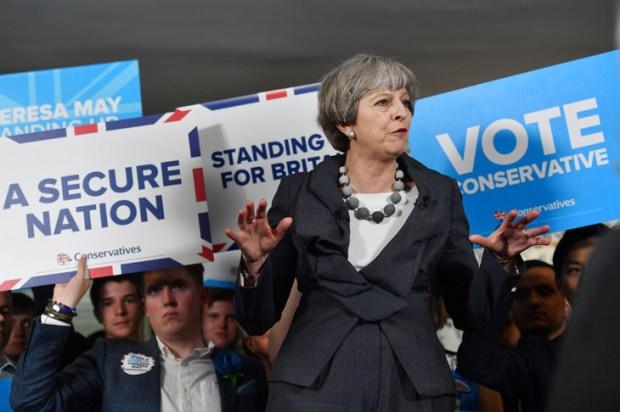I went to prison last week, in Birmingham. Early start, off on a train from Euston. It was my kids’ first day back at school, as well, so I called them just before I went through the gates. ‘Daddy’s in prison?’ said my seven-year-old, incredulously. ‘Listen,’ I said to my wife. ‘She’s not allowed to turn up in her classroom and tell everybody that her daddy’s in prison.’ And then she laughed and I laughed, and I went inside and handed over my phone and went through a gate, and then another gate and then another gate and then so many more gates I rather lost count, and then I ended up in a room with 40 men of about my age who hadn’t seen their kids in ages, and I thought to myself, ‘Hmmm, well, maybe I’ll save that fun little anecdote until I get back out.’
I was there to judge a debating competition. Winson Green is run by G4S, and they’d brought in a group called Debating Matters, which normally runs debates in sixth-form colleges. Now, it had set up Beyond Bars, to do the same in prisons. My fellow judges were academics, think-tankers and media folk and the principal challenge for all of us, I think, was not to be horrendously patronising. ‘But aren’t you eloquent,’ you sometimes wanted to say, to one prisoner or other, ‘for somebody in a place like this?’ Except you nursed a nagging fear that if you did, they might roll their eyes at your presumption and then tell you about their PhD.
I don’t think there were many PhDs. Not that I’d know. Peculiar, really, the questions you’re comfortable asking with prisoners, and the ones you aren’t. Life inside, the food, the daily grind; all of that seems right and proper. Between debates, and as we broke for lunch, it felt natural enough to ask where people were from, but a terrible transgression to ask what they had done for a living when they lived there. In case they said something like ‘armed robbery’ or ‘mainly extortion’, I suppose. Definitely, it would have felt terribly wrong to have asked them what they’d done to end up inside. But chatting to one of my fellow judges on the way home, we both realised we only thought that because of The Shawshank Redemption. So maybe it would have been fine.
Being a hack, I googled a few of them once I had left. Drug smugglers are pretty good at debating, it turns out. Fairly complex job, when you think about it. Logistics. Takes nous. The violent criminals were less obviously fluent, although a notable exception to that rule came with some of the Muslim guys, who would declaim with all the revolutionary fervour of the mosque, even when the motion concerned something like the BBC licence fee. The real flashes of wonder came with the ones who started off stilted and perhaps even incoherent, but then suddenly came to life. Clearly realising, there and then, that they were good at something wholly new.
I liked some of these guys enormously. Prisoners chat like nobody else chats, at least any more, perhaps because it’s illegal to take a smartphone through the gates. I’d expected to spend much of the day feeling frightened, and my googling afterwards certainly suggested that I ought to have done. Instead, periodically, came a sense of awkwardness. Incarceration is a horrible thing, even when patently deserved. Visiting a prison, even briefly, you cannot escape a sad, lonely and frankly unfashionable sense of caste. Whatever you have done, there must surely be a unique horror in having to reclassify yourself as a person society has decided to put away. I’m under no illusion that, for most people, having some dilettante media git like me offer wary compliments on their debating skills would be a major life event. These guys, though, clearly didn’t get compliments very often.
I’m also under no illusion that one day in one prison gives me any sort of insight into our justice system. It did strike me, even so, that there was an undeniable sense of Cameron-ism to the whole idea of Beyond Bars. Or, to be more precise, Goveism. I do not have the hugest amount of sympathy for Michael Gove over his political decline, but I’m told, and I believe, that the curtailment of his brief term as Justice Secretary is well worth regretting. Whether one approves of his reforms to our education system or not, they were certainly bold. Before Brexit madness took hold, he was talking about far-reaching reforms to prisons, too, judging them on the extent to which they reformed their inmates rather than just kept them off the street. Far more, in other words, of this kind of stuff. Such things were at the heart of David Cameron’s last Queen’s Speech.
Last week the new Justice Secretary, Liz Truss, appeared to hurl pretty much all of that out the window. This may be because her new boss, Theresa May, has always been rather more lock-’em-up-and-throw-away-the-key. Yet initiatives like this — where the third sector reaches into part of the first, run by the second — remind you that Cameronism wasn’t just bicycles and Steve Hilton waffling in a yurt, but could be clear-sighted and genuinely progressive, too. Moreover, the party the Tories have now become adored these developments. May used to talk like a moderniser, but her instincts, at least thus far, appear to be anything but. So keep an eye on prisons, and public sector reform generally, as much as on schools. When the Cameroons finally revolt, this will be why.
Got something to add? Join the discussion and comment below.
Get 10 issues for just $10
Subscribe to The Spectator Australia today for the next 10 magazine issues, plus full online access, for just $10.















Comments
Don't miss out
Join the conversation with other Spectator Australia readers. Subscribe to leave a comment.
SUBSCRIBEAlready a subscriber? Log in